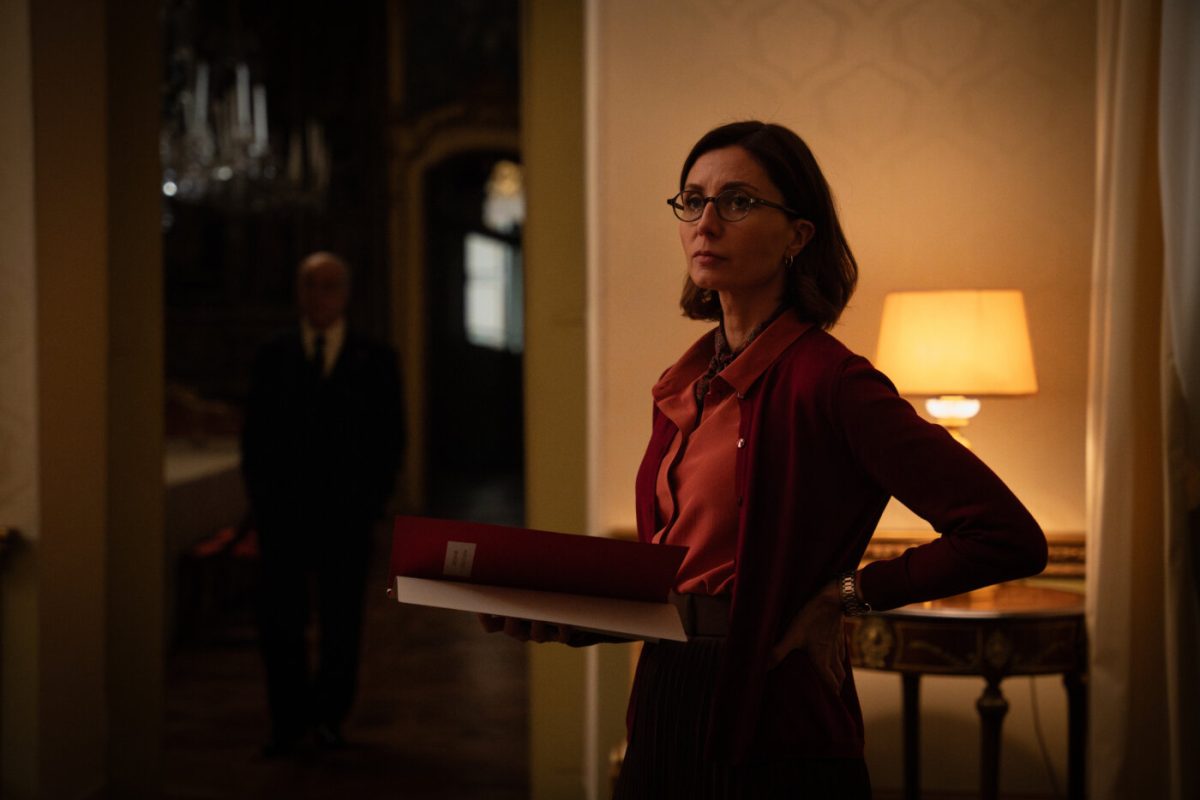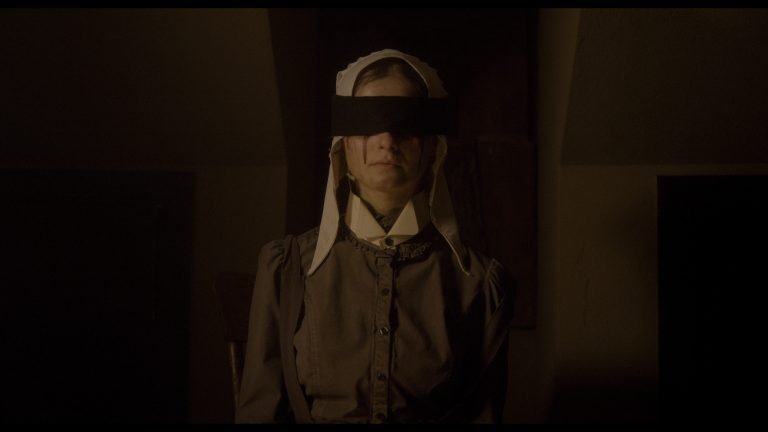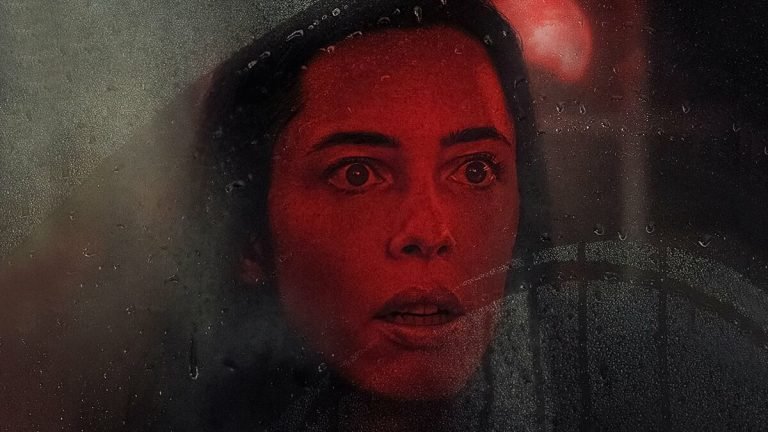Always adhering to the two-to-three-year gap between releases expected of most consistently employed filmmakers, Paolo Sorrentino has never rushed anything to market as hastily as he has “La Grazia.” Premiering just over a year after the disastrous debut of his prior opulent production “Parthenope”—and just half a year after A24 quietly brushed that film off into theaters before looking the other way as it slid into oblivion—Sorrentino’s latest, uncharacteristically restrained production could only be viewed, on the surface at least, as an impulsive attempt at damage control.
Impulse, after all, is Sorrentino’s bread and butter, and just as “Parthenope” found the director challenging his greatest inclination towards questionable female representation in his oeuvre (and drowning in the process), “La Grazia” stands as the Italian maximalist’s attempt to reach into a compensatory feeling of moderation the likes of which we haven’t seen from him since his initial run in the 2000s.
However, while films such as “The Consequences of Love” and “The Family Friend” exercised restraint due to the resources Sorrentino lacked, “La Grazia” finds the filmmaker deliberately locking himself away from the temptations of his uninhibited hedonism and reckoning with the isolation that comes with the distance of age.
Not to say that even a cordoned-off palace of concrete and legal dictionaries would prohibit Sorrentino from finding some form of decadence in his rumination on what can and cannot be let go with the passage of time and the possession of power. Re-teaming with his eternal muse Toni Servillo (whose absence from “Parthenope” can be considered a contributing factor to its failure, if you want to be petty about it), Sorrentino once more casts him in the role of an Italian head of state, though this time one of complete fiction.
Servillo plays Mariano De Santis, the Italian president serving out the final six months of his final term as head of the nation, with little to show for his tenure besides an immortal reputation for unwavering sturdiness. In a political system that thrives on the ineffectiveness of bureaucracy, De Santis’s firm governance in times of turmoil has been remarked with equal notice to his indecision in passing any significant legislation. In this, the final moments of his time as president, De Santis is faced with presidential decisions whose stresses seem unnecessary for someone on his way out the door, but whose swift attention could give meaning to a life defined by the limbo of hesitation.

Also Read: The 13 Best Italian Movies from the 2000s
These particular presidential matters—the signing of a national bill legalising euthanasia and the pardon requests of two convicted murderers (one who seems eager but undeserving of clemency, and the other seemingly the exact opposite)—inherently bring up the matter of the film’s title (“grazia” meaning both “pardon” and “grace,” themselves largely intertwined terms), made from implicit to explicit in De Santis’s long periods of contemplation with his closest advisor and daughter, Dorotea (Anna Ferzetti).
Suffice it to say, the trademark subtlety of Sorrentino’s filmography (citation desperately needed) carries over into even his most contained effort, as matters of personal and professional pause are contemplated with all the impassioned verbiage expected of any exasperated Italian. Sorrentino, in his attempt to curate emotional maximalism where visual maximalism lies dormant, leverages these repressed exchanges for some astute bits of comedy borne from ritualistic irritation.
Passion, however, seems atypically absent from “La Grazia” in its craft, as De Santis’s dilemma is carried out with the filmmaker’s expected bursts of slow-motion rumination and teases of italo-house music, only to be siphoned off across a lethargic runtime (the only real excess on display here) with little in the way of expressive exchange between Servillo and his constricting milieu.
Servillo himself is, as always, a huge asset to keeping Sorrentino’s aims focused, able to effortlessly tell an entire life story through the ravenous depletion of a cigarette in a single inhale. Even when the film fails to grab hold of the smooth walls of the Quirinal Palace and climb up to meet its horizon, Servillo gives every indication that the comforts of staying on the ground are on the verge of killing him with convenience.
In that sense, “La Grazia” arguably stands as a gradual extension of Paolo Sorrentino’s journey across the spectrum of cinematic maximalism, here creating something more imposingly brutalistic than boisterously Felliniesque. (It was only a matter of time before our worst nightmares were realized, and Sorrentino finally discovered rap music.
Does this political hip-hop travesty then make “La Grazia” the 2025 equivalent of “Bulworth?”) But while the outcome seems to make sense, the road to get there is paved just as unevenly as it is well-intentioned, resulting in a character arc that knows the beats it must hit, but fails to land from one to the other with the required sense of, well, grace. Sorrentino is desperate to atone, and while his case is one worth considering, a firm answer for this pardon may require further deliberation.






![Taming the Garden [2021] ‘MUBI’ Review: An Anger-inducing Synecdoche for Human evolution](https://79468c92.delivery.rocketcdn.me/wp-content/uploads/2022/01/Taming-the-Garden-2021-768x432.jpeg)
![I’ve Heard the Mermaids Singing [1987] ‘MUBI’ Review: A Simple Prufrockian Indulgence that’s Magical in Taste](https://79468c92.delivery.rocketcdn.me/wp-content/uploads/2022/03/Ive-Heard-the-Mermaids-Singing-768x432.webp)
![5 Million Dollar Life [2019]: ‘NYAFF’ Review – The Cost Of Living To Die](https://79468c92.delivery.rocketcdn.me/wp-content/uploads/2019/07/5-Million-Dollar-Life-highonfilms1.jpg)